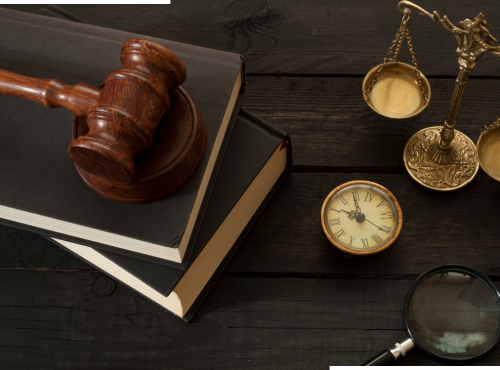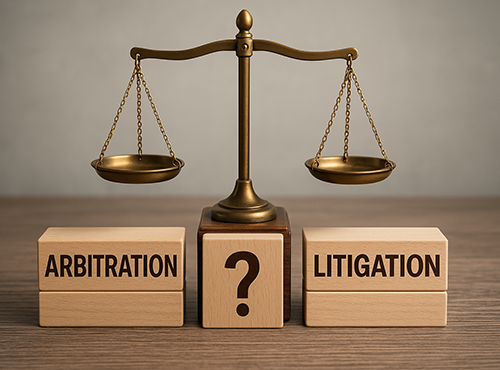Social Media and Cyber Defamation – What Actions Can You Legally Take?
In today’s digital era, the surge of social media platforms has reshaped the dynamics of communication, creating vast networks that span the globe. These platforms are not just hubs of social interaction but pivotal in the dissemination of information, driving political campaigns, fostering business growth, and much more. Yet, amidst these beneficial aspects lies a significant trouble: cyber defamation.
Cyber defamation is the act of spreading false and harmful statements online to tarnish someone’s reputation. The virtual nature of social media means that such defamatory statements can quickly spiral out of control, reaching large audiences and inflicting serious reputational damage at an alarming speed. The ease of posting anonymously or with pseudonyms on platforms further complicates the issue, often making it challenging to trace the source of defamatory content.
Recognizing and understanding cyber defamation is paramount in today’s interconnected world. It is crucial for everyone—individuals, professionals, and businesses—to grasp the legal rights and protective measures that can be deployed against such online assaults. This blog aims to delve deep into the world of cyber defamation, examining its implications and outlining actionable legal strategies to safeguard against it. By empowering readers with this knowledge, they can confidently navigate the complexities of social media with an informed awareness of their legal recourses.
Understanding Cyber Defamation
Cyber defamation is an increasingly common and destructive issue in the digital world, where false information is spread online to damage an individual’s or organization’s reputation. This problematic phenomenon exploits the rapid circulation capabilities of the internet, specially on social media platforms.
Definition of Cyber Defamation
Cyber defamation refers to the act of posting or sharing false information about a person or entity on the internet with the intent to harm their reputation. Unlike traditional defamation, its cyber counterpart can spread globally within seconds, making it more dangerous and impactful. This definition underscores the need for internet users to exercise caution and responsibility when posting content online.
Examples of Cyber Defamation on Various Social Platforms
- Twitter: Rapid tweet sharing can turn a baseless accusation into a trending topic, severely damaging someone’s public standing overnight.
- Facebook: Personal disputes can escalate when defamatory posts or images are shared across networks, reaching hundreds or even thousands of viewers.
- LinkedIn: False professional allegations here can destroy careers, given the platform’s focus on employment and business relationships.
Impact of Cyber Defamation on Personal and Professional Life
The consequences of cyber defamation can be extensive:
- Personal Impact: Victims may suffer from severe emotional distress, depression, and social isolation. The stress from being defamed online can lead to long-term psychological issues and strain personal relationships.
- Professional Impact: Professional repercussions often include job loss, hindered career progression, and a tarnished reputation within one’s industry. These effects are not only immediate but can also have a lingering impact, making recovery and rehabilitation in one’s field challenging.
Understanding cyber defamation in detail helps individuals and organizations prepare and protect against potential online attacks. By recognizing the forms it can take and the severe impacts it may have, one can better navigate the complexities of digital interactions while safeguarding personal and professional integrity.
Legal Framework against Cyber Defamation
In India, the legal battle against cyber defamation is supported by a combination of the Information Technology Act, 2000, and the Indian Penal Code (IPC). These laws are instrumental in addressing and mitigating defamation in digital realms, particularly on social media platforms.
Overview of Relevant Laws and Statutes in India
- Information Technology Act, 2000: This act specifically addresses cybercrimes and electronic commerce, with certain provisions applicable to cyber defamation. Although Section 66A was struck down, other provisions continue to combat harmful electronic dissemination.
- Indian Penal Code: Sections 499 and 500 provide a clear definition of defamation, applicable to digital and non-digital forms. These sections are crucial for legal proceedings related to cyber defamation.
How These Laws Apply to Social Media
On social media, where rapid circulation of information occurs, these laws play a crucial role. They ensure that any defamatory content shared can lead to legal consequences, safeguarding individuals’ reputations against unwarranted attacks. Victims can leverage these laws to initiate both criminal and civil actions, effectively holding perpetrators accountable for spreading defamatory content on platforms like Twitter, Facebook, and LinkedIn.
This legal framework is vital for maintaining decorum online and providing a recourse for those affected by cyber defamation. Knowing these laws helps users navigate social media more safely and responsibly, aware of the legal implications of their online behaviour.
Actions to take if You're a Victim of Cyber Defamation
If you find yourself a victim of cyber defamation, taking swift and structured actions is crucial to managing the situation effectively and mitigating any potential damage to your reputation.
Immediate Steps to Take After Experiencing Cyber Defamation
- Documentation: Immediately begin documenting the defamatory content. Screenshot posts, comments, and any related online interactions that could serve as evidence.
- Report: Use the report functions available on most social media platforms to flag and potentially remove the defamatory content.
- Restrict Interaction: Consider blocking or limiting interactions with the perpetrator to prevent further incidents.
How to Gather Evidence and Document the Defamation
- Collect Digital Evidence: Save all electronic communications, including emails, texts, and social media posts. Note the URLs, timestamps, and any user information available.
- Witness Statements: If others have seen the defamation, their accounts and statements could support your case.
- Preserve the Context: It’s essential to capture the context in which the defamation occurred, as it can influence the severity and intent behind the words.
When to Contact a Lawyer
- Legal Consultation: Consult with a lawyer who specializes in cyber defamation as soon as possible, like that from Adlegal. Legal expertise is crucial to understand the details of your situation and the appropriate legal response.
- Consider Legal Action: Your lawyer can help to determine if legal action is advisable or necessary based on the evidence and impact of the cyber defamation.
Understanding and following these steps can greatly enhance your ability to effectively address and counteract cyber defamation.
Preventive Measures and Best Practices against Cyber Defamation
Protecting yourself from cyber defamation involves proactive strategies and an understanding of digital security.
Tips for Protecting Oneself from Becoming a Victim of Cyber Defamation
- Think Before You Share: Always consider the consequences of posting or sharing information online. Avoid sharing content that could be misinterpreted or used maliciously.
- Educate Yourself and Others: Awareness about what constitutes cyber defamation and how it can affect you is crucial. Educate your friends, family, and colleagues about the risks and encourage respectful online interactions.
- Maintain Professionalism Online: Keep your online posts and interactions professional and courteous, especially on platforms like LinkedIn that reflect your professional persona.
Importance of Digital Privacy Settings and Awareness
- Adjust Privacy Settings: Regularly review and adjust your privacy settings on all social media platforms to control who can see your posts and personal information.
- Be Aware of Phishing and Scams: Educate yourself on common cyber threats like phishing and scams that can lead to security breaches and unintended information disclosure.
- Regular Monitoring: Periodically search for your name or business online to monitor what is being said about you. This can help you catch and address cyber defamation early.
Implementing these preventive measures can significantly reduce the risk of becoming a target of cyber defamation and help maintain a positive online reputation.
FAQs
A. Cyber defamation involves the act of harming someone's reputation online through false or malicious claims. This can occur across various social media platforms where the spread of information is rapid and widespread.
A. Cyber defamation can lead to severe personal repercussions including emotional distress, social isolation, and damage to personal relationships due to the spread of false information.
A. Professionally, cyber defamation can result in job loss, damaged professional reputation, and hindered career progression, which might be difficult to recover from.
A. Immediately document the defamation, report the content through the social media platform’s report function, and limit interaction with the perpetrator.
A. Save screenshots of all defamatory posts, including URLs and timestamps. Collect any relevant electronic communications and witness statements if possible.
A. It’s advisable to consult a lawyer specializing in cyber defamation as soon as you have gathered sufficient evidence or if the defamation is causing significant impact.
A. Be cautious about what you share online, adjust privacy settings on social media, and educate yourself about the risks and protections against cyber defamation.
A. Adjusting privacy settings helps control who can see and interact with your content, reducing the risk of cyber defamation.
A. Victims can pursue both criminal and civil remedies based on the severity of the cyber defamation and the applicable laws.
A. Cyber defamation spreads faster and can have a wider impact due to the connectivity and reach of the internet.
A. AdLegal offers expert legal counsel and representation in cases of cyber defamation, helping clients navigate the complexities of such legal challenges.
Conclusion
Understanding the details of cyber defamation and its implications is crucial in today’s digital-first world. This knowledge is not only essential for protecting your personal and professional reputation online but also serves as the first line of defense in mitigating potential damages caused by such defamation. As we have explored, the legal frameworks in place provide a robust basis for combating and seeking redress against cyber defamation.
However, navigating the legal landscape can be complex, especially when dealing with the intricacies of digital laws. Therefore, seeking professional legal advice becomes paramount. If you find yourself a victim of cyber defamation, or if you need to understand more about your rights and the preventative measures you can take, professional legal help is advisable.
We encourage anyone facing such issues to contact AdLegal for specialized consultation. Our expertise in cyber defamation cases ensures that our clients receive the best possible advice and representation, tailored to protect their online presence effectively. Reach out to us, and let us help you safeguard your reputation against unwarranted online attacks.
For detailed information about different services provided by us, go to our Services Page.



